Prostate Cancer is slowly becoming a major health scare globally today. It is estimated that the maximum number of cases will be of prostate cancer by the year 2020. The prostate gland is situated below the urinary bladder in the men. It produces certain enzymes that are essential for survival of sperms.
Despite the public health concerns, prostate cancer is one of the least talked about cancers, especially in India, due to lack of population registries and public awareness for this illness. Various myths abound public knowledge of this cancer. It is a good idea to know all symptoms of prostate cancer and sort out all the misconceptions surrounding this condition that claims 4.04 million years of quality healthy life globally.
Myth #1
Prostate cancer occurs only in older men
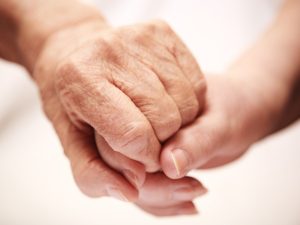 While it remains a fact that the risk of prostate cancer increases with age, and almost 80% of cases seen in men beyond 65 years of age, it can be diagnosed in men under 50 as well. Many risk factors like family history, health, lifestyle also play a role.
While it remains a fact that the risk of prostate cancer increases with age, and almost 80% of cases seen in men beyond 65 years of age, it can be diagnosed in men under 50 as well. Many risk factors like family history, health, lifestyle also play a role.
Myth # 2
If there are no symptoms, you don’t have prostate cancer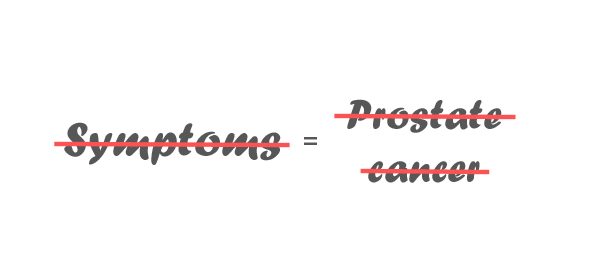
Incorrect. In oncology, prostate cancers are the one of the most asymptomatic ― meaning most men do not experience any complaints early on. Prostate cancer symptoms are usually detected while doing a routine check up at the doctor’s office for some other condition.
Common symptoms of prostate cancer include :
- Frequent urination
- Difficulty in starting or stopping urination
- Flow of urination is interrupted
- Difficulty in getting an erection
- Ejaculation is painful
- Blood in urine and semen
- Pain and stiffness in lower back
Myth # 3
Prostate cancers are slow, I need not worry
The answer is sometimes Yes, sometimes No. Among the various types of prostate cancers that have been identified by researchers, many cancers are slow while others are aggressive. The diagnosis is confirmed by a pathologist who examines a biopsy sample to predict if the cells have the potential to be aggressive in the future.
Myth # 4
I don’t have a family history of prostate cancer, so I will never have it
 Incorrect. Sure, a positive family history of prostate cancer doubles the risk, but no family history of prostate cancer doesn’t mean you are totally exempt. Past habits like alcohol consumption especially whisky, and smoking increase the risk of prostate cancer.
Incorrect. Sure, a positive family history of prostate cancer doubles the risk, but no family history of prostate cancer doesn’t mean you are totally exempt. Past habits like alcohol consumption especially whisky, and smoking increase the risk of prostate cancer.
Myth # 5
My doctor asked me to take a PSA test, which means I have prostate cancer.
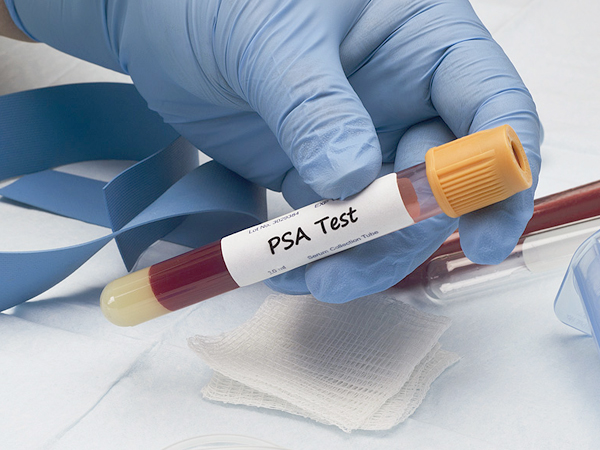 Incorrect. The PSA (Prostate Specific Antigen) merely checks for levels of the specific antigen, and not directly for cancer. PSA can be high in non-cancerous conditions like prostatitis (inflammation of prostate) or Benign Hyperplasia of prostate as well. It is only one of the first screening tests in the diagnosis of prostate cancer that makes it easier to detect in the early stages making treatment and prognosis more favourable.
Incorrect. The PSA (Prostate Specific Antigen) merely checks for levels of the specific antigen, and not directly for cancer. PSA can be high in non-cancerous conditions like prostatitis (inflammation of prostate) or Benign Hyperplasia of prostate as well. It is only one of the first screening tests in the diagnosis of prostate cancer that makes it easier to detect in the early stages making treatment and prognosis more favourable.
Myth # 7
A high PSA level means I have a higher chance of prostate cancer
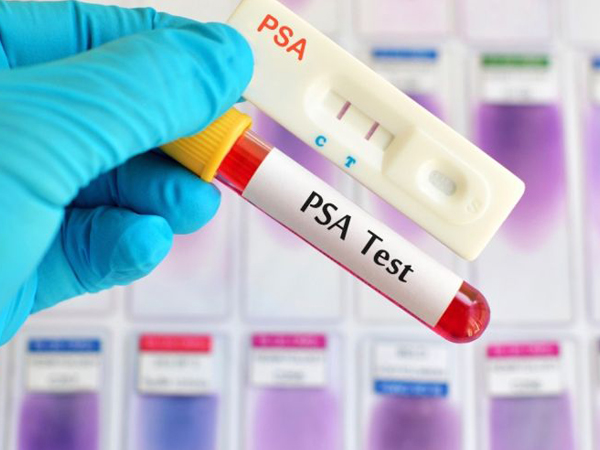 Incorrect again. Commonly, PSA levels are seen to be high in cases of prostate cancer, but they can also be low in some cases. In obese or overweight people, due to higher blood volume, the PSA levels may be diluted and thus, lower.
Incorrect again. Commonly, PSA levels are seen to be high in cases of prostate cancer, but they can also be low in some cases. In obese or overweight people, due to higher blood volume, the PSA levels may be diluted and thus, lower.
Myth # 8
Prostate cancer treatment leads to impotency
 Erectile dysfunction and urinary incontinence are usually seen in men after a surgery for prostate cancer, but these are rare. Also, if they do happen, there are many other therapeutic measures that can be used to to improve erection and limit incontinence.
Erectile dysfunction and urinary incontinence are usually seen in men after a surgery for prostate cancer, but these are rare. Also, if they do happen, there are many other therapeutic measures that can be used to to improve erection and limit incontinence.
Myth # 9
I need to start treatment immediately on detection.
Again here, it is the doctor’s discretion that makes the decision. If your andrologist has diagnosed that your cancer is not a concern or you are well in your 70s, you may not need treatment right away. Doctors here use the ‘active surveillance’ approach – where regular follow ups are conducted to see whether your cancer is worsening. If your symptoms get aggressive, treatment might be promptly started, else it will be wait and watch.
Myth # 10
I can pass the cancer to other people or get it from others.
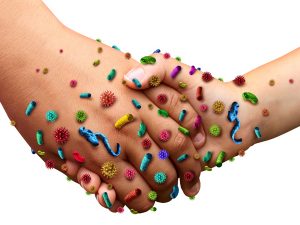 Absolutely incorrect. Prostate cancer is not an infectious illness. It cannot be ‘passed’ on to other people.
Absolutely incorrect. Prostate cancer is not an infectious illness. It cannot be ‘passed’ on to other people.
You might want to hug your dad at this point.
Liked the article? Also read about how Men can help end domestic violence.



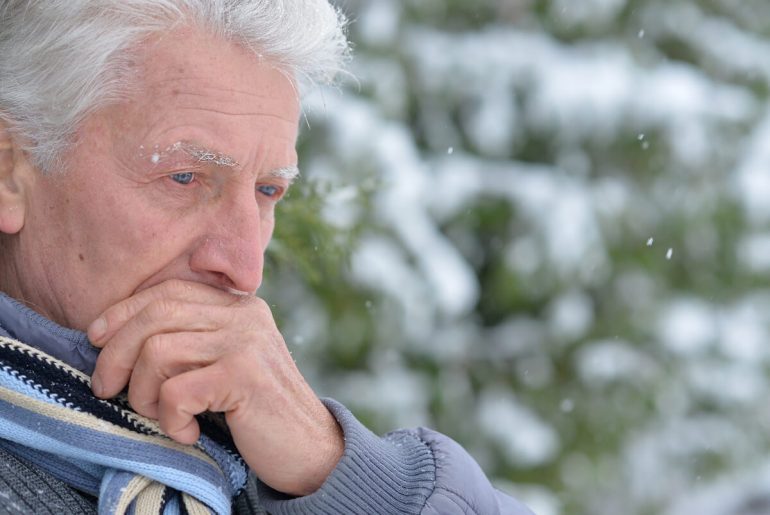

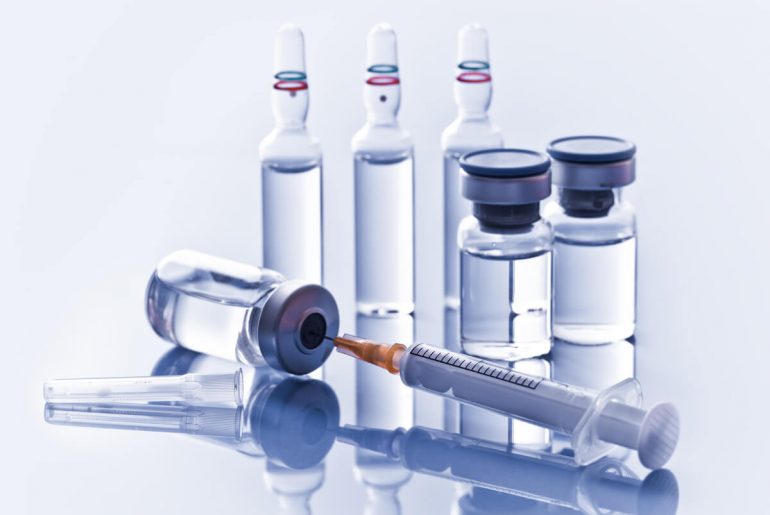
1 Comment
Most of men, including me, don’t give this topic the importance it deserves , we believe its only a problem old men face but the reality is totally different.. if we don’t take preventions we may get a surprise and not precisely a good one. My brother was worried because he started having prostate problems, im glad it was not cancer, but his prostate was enlarged, after few months taking a supplement called alpha rise (the urologist prescribed it to him) he is recovered.
We must work at making more of us guys aware that we should have tests.